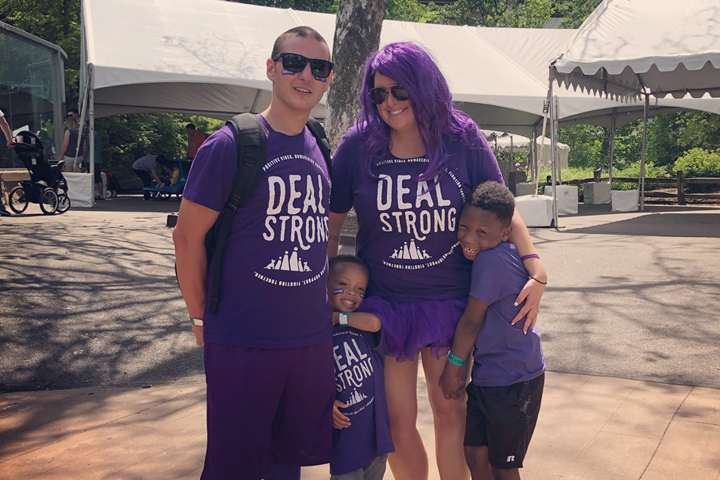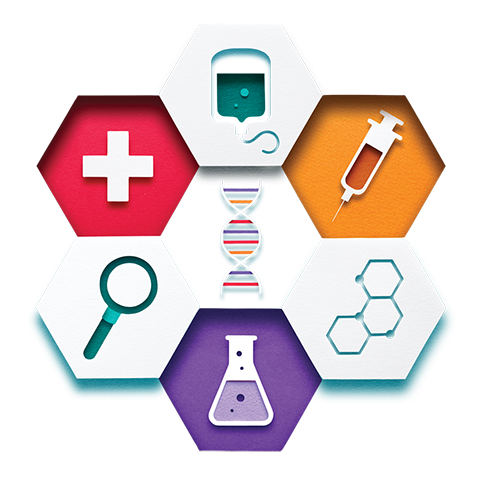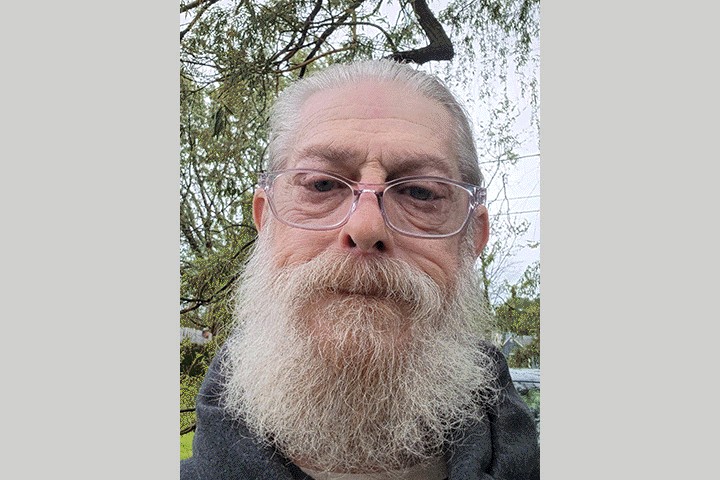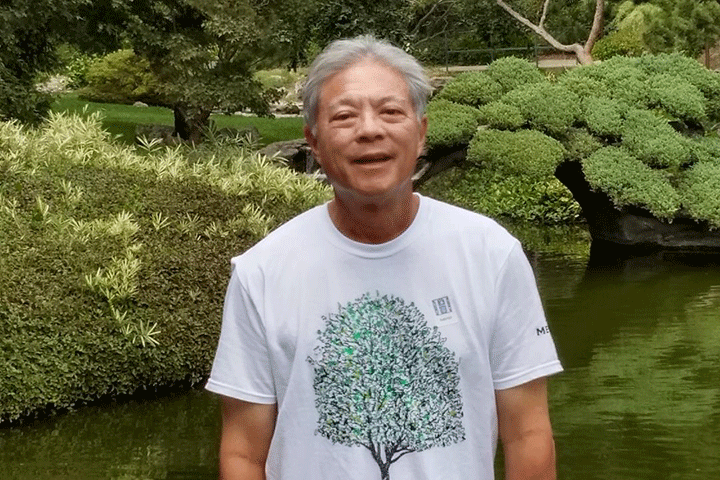Tumor RNA Testing Leads to Treatment with a New Drug

- Notable weight loss leads to stage IV pancreatic cancer diagnosis
- Initial treatment with FOLFIRINOX
- Tumor testing and a new drug for my gene fusion
The summer of 2017, I needed to have a tuxedo fitted for my closest friend’s wedding, so I made an active effort to lose weight and get in shape to look “good” in the wedding pictures.
Luckily, the weight was coming off and for the first time in many years, I had a six pack! A few weeks before the wedding, I had the final fitting and the tuxedo fit perfectly. The day of the wedding, in September of 2017, I went to try on the tuxedo, and I was swimming in it. I was shocked by this but assumed my workout routine and good diet were the reasons why. My wife looked at me and said, “Something just doesn’t look right.” She insisted that I see my primary care physician when we got back to Cleveland.
A few days after the wedding, on my 33rd birthday, I met with my primary care physician and explained the dramatic weight loss. I also mentioned that I had been having heartburn and indigestion, something I had never had before, which was a little scary for me. He ordered an ultrasound of my gall bladder. The assumption was that I had gall stones and we just needed to verify it and I would have my gall bladder removed.
My father, who is a physician, called a friend of his and set up an appointment for my gall bladder to be removed. The next day, I had the ultrasound. During the ultrasound, the tech moved around and noticed something on my liver, but never said anything to me. She left for a few minutes and then came back and unbeknownst to me, started looking at my liver. That night, my father called me and said that they had found some lesions on my liver and that my gall bladder was fine. I was told to show up for a CT scan the next morning.
The CT scan was quick and now we waited for the results. My mind began to wander—how could there be anything wrong with my body. I was an avid crossfitter and worked out five to six times a week. I was relatively healthy with no major illnesses my whole life. Then the phone call came from my dad. He told me to meet him at their house.
Diagnosis Catches Me By Surprise
My wife and I drove to my parents’ house and waited for my father to come home. I will never forget the next thing he said to me as we stood in their kitchen. He looked at me and said that my liver was covered in tumors as well as my pancreas. I will never forget the looks on my parents’ faces. I will never forget the blank stare in my wife’s eyes. Immediately, my life flashed before my eyes. All I could think about was my newly adopted boys growing up without a father, my wife being left alone without a husband, and my parents burying their child.
Two days later, I had a biopsy of my liver to determine if this was cancer and what type of cancer it could be. On October 4th, 2017, I sat with my wife and parents in the oncologist’s office where he explained I had stage IV pancreatic cancer. I will never forget looking at my wife, scared out of my mind. My parents tried to hold their emotions as best as possible, but with this type of news, how can you? In a matter of 10 days, I was diagnosed with one of the deadliest cancers, had a port placed in my chest, told I had two to 12 months to live, and started chemo.
Looking back, did I have the standard symptoms commonly found with pancreatic cancer? It’s very possible, but I could easily explain everything away. We have two boys, at the time ages 4 and 3. Keeping up with them was not easy, so I was constantly tired. Due to working out almost daily, I was always sore, so I could explain away any abdominal or back pain. I was never jaundiced. The only real symptom was my weight loss. In a matter of three months, I had lost almost 40 pounds.
Genetic Testing Leads to Change in Treatment
After my diagnosis, I immediately began chemo treatments at the Cleveland Clinic with oncologist Dr. Robert Pelley (now retired). I was on FOLFIRINOX (a combination of four drugs) for eight months. Eventually the side effects began to be too much, and we dropped the oxaliplatin. I stayed on the remaining drugs for another eight months until we noticed that it was not having as much effect on my tumors.
During that time, I had my tumors genetically tested but they came back with no actionable mutations. Luckily, Dr. Aaron Viny, a family friend who is a cancer researcher at Memorial Sloan Kettering Cancer Center (MSKCC) in New York (now at Columbia, also in New York) reached out to us and said, “It’s not possible, let’s try something different.” He told us to meet with Dr. Eileen M. O’Reilly, a doctor there. In August 2018, I had another biopsy at MSKCC. This time, they were going to test my RNA as well as my DNA. After waiting about six weeks, we received news that MSKCC had found a gene fusion called NRG1. This fusion is more common in lung and breast cancer, but there are drugs that target NRG1. In February of 2019, we met with doctors at MSKCC to discuss a new drug called MCLA-128 that had been successful in breast and lung cancer trials.
After much discussion, we decided that trying this drug would be high-risk, but with a potentially high reward. This drug had never been tried with pancreatic cancer and there was no data to indicate it would work. Terrified, I began taking the drug in March of 2019. The first treatment went well, and the side effects were minimal. At the start of the trial, my CA 19-9 was 422; after the first treatment it dropped to 132. Every other week, I would fly to New York City for the infusion and we would see my marker drop. It finally dropped all the way to 11. My hair grew back, I started gaining weight, and I felt like a normal human being. This drug was literally giving me my life back without the chemo side effects.
A Clinical Trial for Me and Others
I have now been on this drug for seven months and I am still thriving. My CA 19-9 level has gone up and is now 51; however, scans indicate that my tumors are mostly stable and are basically inactive. Due to my success, as well as the success of another patient, the drug company and Dr. Alison Schram at MSKCC decided to open a clinical trial for others with this NRG1 fusion. Our hope is that this drug will be the next best thing to help those fighting pancreatic cancer.
MSKCC is looking for people with this gene fusion to enroll them into the trial. My hope is that my story will encourage people to keep their fight going and learn that there are more options than just your standard chemo treatment. Full genomic testing is crucial to this fight and MSKCC has set aside funds to study tumors looking at RNA as well as DNA.
A year after sharing his story with us, Adam passed away. He bravely took a risk with an experimental drug that has since led to a clinical trial. We offer our deepest sympathy to his family.






